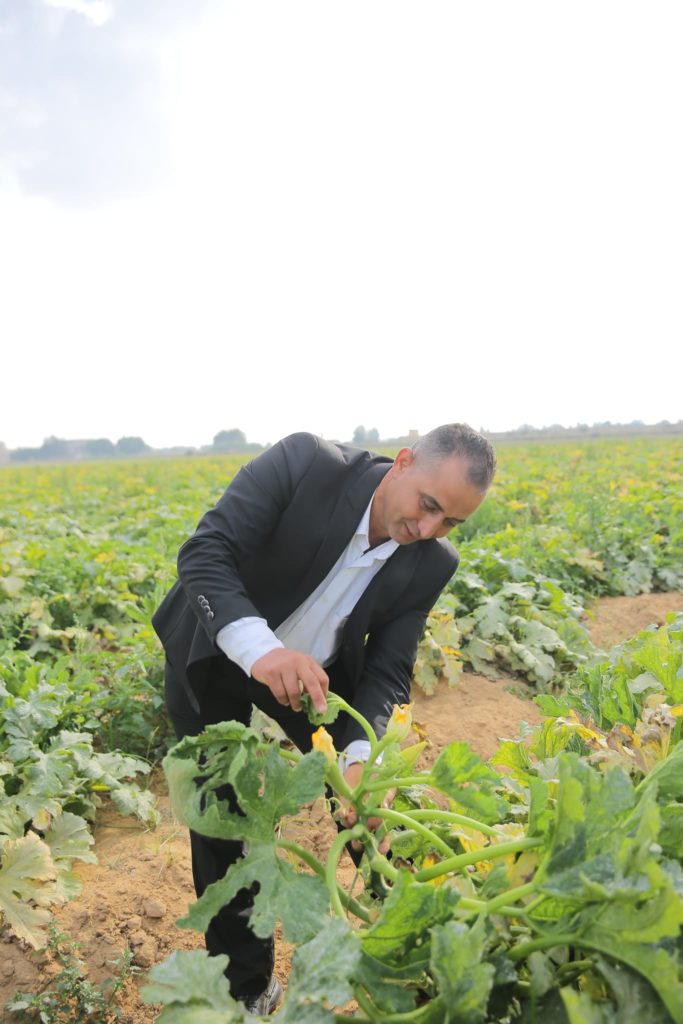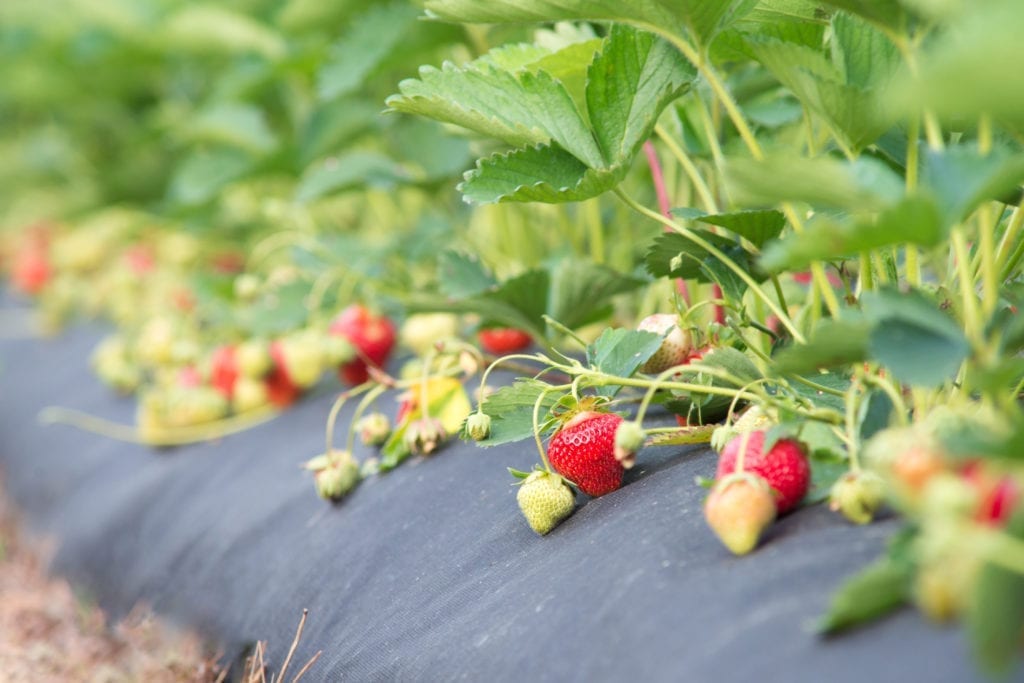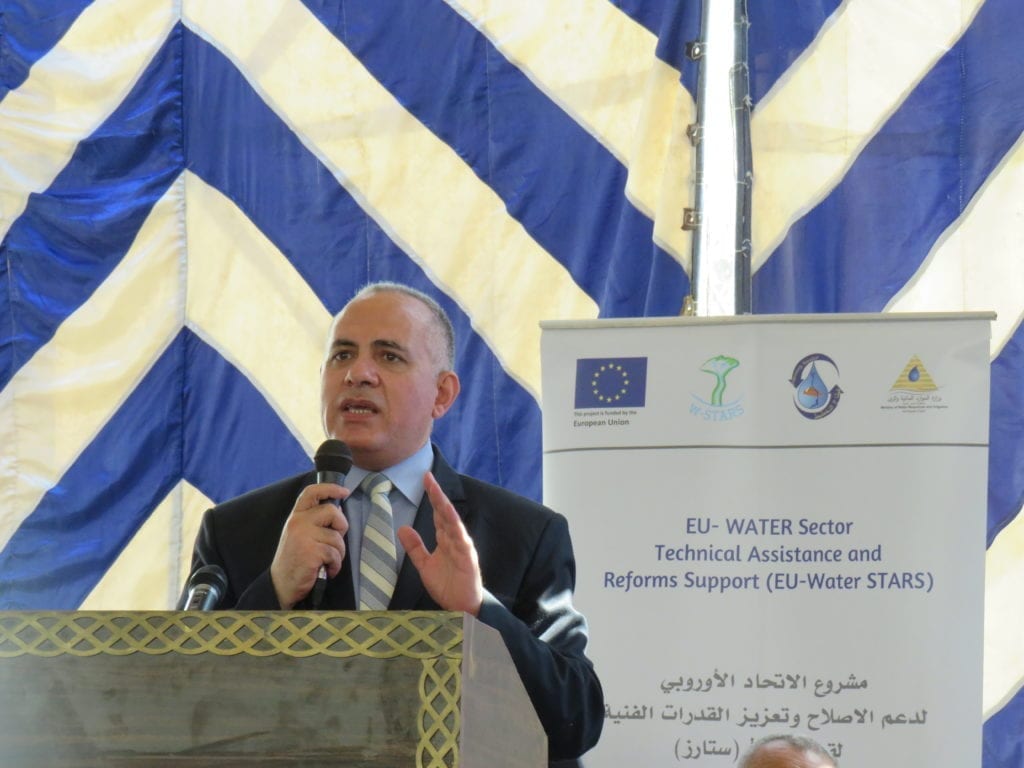Irrigation Modernization in Egypt
Water is becoming an increasingly scarce commodity around the world, something that is having an impact across many sectors of the economy, and particularly in agriculture. In Egypt, the Ministry of Water Resources and Irrigation stimulates awareness raising and implements irrigation modernization and other reforms that contribute to water and food security – helping both the economy and the environment. The EU Water STARS project is supporting this reform process.
Kamel Mohamed Abdou – from Nubareya, a town northwest of Cairo – is one of ten winning contestants in the Third National Competition for Water Conservation, held to raise awareness among farmers across the country about the importance of rationalizing water consumption through the adoption of modern, water saving and higher income generating irrigation methods.

Creating awareness
The competition is part of a wider awareness-raising campaign organized by the Ministry of Water Resources and Irrigation with support from the European Union Water Sector Technical and Reform Support (EU Water STARS) project. The project aims to support the Egyptian government in ongoing fundamental water reforms and is helping alleviate water scarcity though better management and increasing water productivity.
After years of using flood or surface irrigation, a method used successfully for decades after the construction of the High Aswan Dam, Abdou, like many other farmers in the county, has recently adopted the drip irrigation method for the cultivation of a variety of fruit and vegetables on his 95 feddan (22 hectare) farm, an acreage more than twice the size of the average farm in his region.
“With drip irrigation, my farm productivity has increased by more than 30%, and I have also managed to reduce water and fertilizer use by almost 50%.” Abdou was addressing about 50 farmers from the region during a knowledge sharing session on his farm in late November 2020, one of a string of such events organized by the Ministry of Water Resources and Irrigation in collaboration with the EU Water STARS project .
“Drip irrigation delivers water and nutrients directly to the plants’ roots in the right amounts so that each plant gets exactly what it needs to grow,” he explained.
“This method also deters the growth of unwanted weeds and pests,” he added.

Convinced by his argument, most of the small farmers attending the knowledge transfer session said they were willing to adopt the more water-efficient irrigation techniques such as drip and sprinkler, however they needed support and guidance from the Ministry of Water Resources and Irrigation.
Addressing the gathering, Eman Sayed, Head of the Planning Sector at the Ministry, said that the government was launching modern irrigation systems in line with the Ministry’s ‘National Water Resources Plan 2017-2037’.
“We are replacing old flood irrigation practices with the modern drip and sprinkler methods to meet farmers’ needs and enable them to work without depleting water resources,” she said. “It is part of the Ministry’s plan to increase water use efficiency”.
Avoiding a water crisis
In recent years, a shortage in water supplies has forced many farmers to abandon their land amid a looming water crisis. And things could get worse as Ethiopia starts filling a reservoir behind the Great Ethiopian Renaissance Dam (GERD) upstream. Egypt currently has around 570 cubic meters of water per person per year, according to national statistics. That is well below the 1,000 cubic meter benchmark set by hydrologists to indicate that a country is facing water scarcity. A rapidly expanding population, the Great Ethiopian Renaissance Dam, and climate change are the main factors that may contribute to the rise in Egypt’s water deficit.
The agriculture sector consumes the bulk of Egypt’s water resources (around 76%). By rewarding the best practices in modern irrigation, the Third National Water Conservation Competition launched in February 2020 to spread awareness among farmers of the dire need to better manage the country’s dwindling water resources while helping increase the farmers’ productivity. In 2020 nearly 200 farmers participated in the annual competition, delivering their presentations to the jury committee via webinars due to the outbreak and spread of the coronavirus pandemic.

It is not just farmers that are becoming more aware of the country’s water scarcity challenge; several other activities organized by the EU Water STARS project are helping to educate the public and spread greater awareness among the population about water conservation. An online question-and-answer competition has been held with the goal of keeping water-saving ideas in the forefront of citizens’ minds; another competition launched in August encouraged university students from Media Faculties to submit their water conservation projects. Meanwhile, primary school students were also given the opportunity to compete in a so-called Young Water Ambassadors Competition with colorful drawings that reflected their thoughts about the use of water in everyday life. The winning entry depicted water as a life-saving resource, “A simple handwash with soap and water can help protect us against the coronavirus and other germs” was the simple message drawn by a nine-year-old contestant.
These activities are part of an overall modernization strategy of the Egyptian water sector aiming for water use and reuse that results in an increase in higher value products that use less water per unit, as well as sustainable socio-economic growth and better environmental conditions as expressed in the National Water Resources Plan 2017-2037 and the Sustainability Development Strategy 2030 of the Egyptian Government. Within the framework of those plans the upscaling of irrigation modernization is crucial. As a result demonstration projects have been formulated with the support from the EU Water STARS project. This includes three regional demonstration projects, a national coordination project and a national innovation project. Assistance in optimizing financing mechanisms of irrigation modernization by supporting cooperation between farmers, banks, the government, and international funding agencies has all been since provided by the project. The EU, the European Bank for Reconstruction and Development and the Green Climate Fund will support Egyptian initiatives to boost Egypt’s green finance and develop value-added chains for the private sector worth a total of €220 million. This includes loans through local banks to businesses for green investments, stimulating water resources, in addition to supporting small and medium-sized businesses that invest in advanced technology, climate mitigation and adaptation solutions.

Modern solutions
These ambitious plans require appropriate mechanisms to monitor and evaluate its implementation. For that purpose, the Planning Sector of MWRI has established a new Water Accounting Unit which focuses on the monitoring of the way water is used in the different productive sectors. Especially in agricultural water use modern satellite techniques provide a strong added value to more classical field measurements due to its power to produce better assessments of spatial and temporal changes and patterns. EU Water STARS project supports the MWRI with providing training on water accounting techniques and cooperation on practical cases. The first case on the Fayoum Governorate provided new knowledge on possibilities to increase water efficiency in the agricultural sector, safeguarding the environmental status of Nature Conversation Areas in the Governorate and improving field monitoring systems. A second case on the National Water Account will be finalized in 2021.
Since 2007, the EU and Egypt cooperation in the water sector has amounted to €500 million in 20 different programs, leveraging funds of nearly €2.5 billion in the sector and benefitting 18 million Egyptians, nearly one third of the population in the governorates where the interventions occurred.